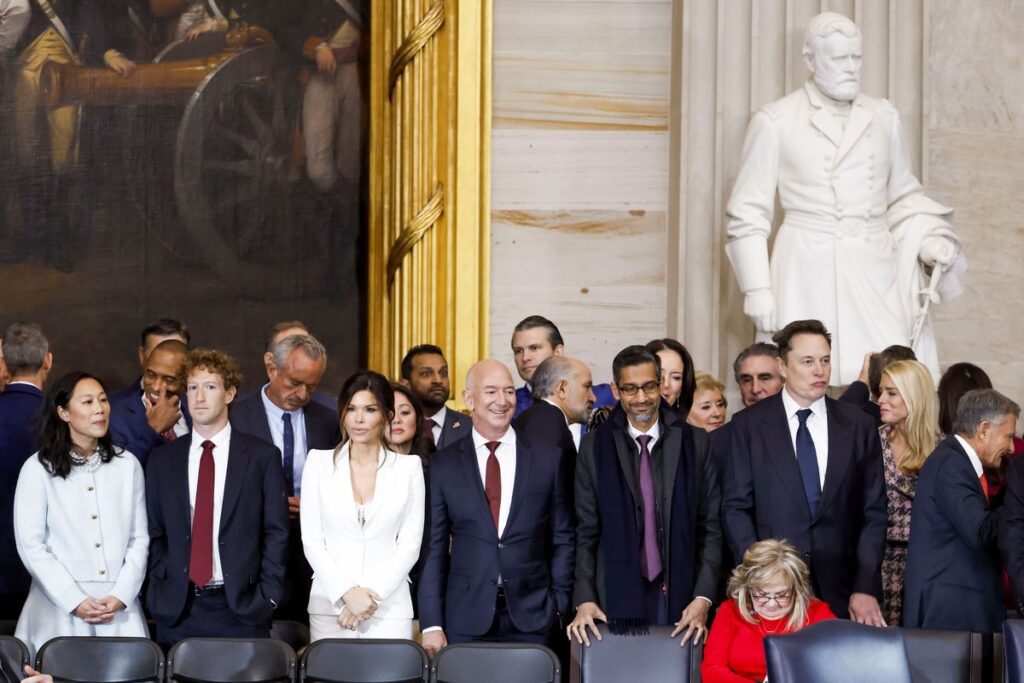The article discusses the alarming concentration of wealth and power among a few corporations and billionaires, particularly in the tech industry led by venture capitalists. In the first part of the series, it highlighted how these entities control social media to influence public opinion. This piece focuses on their impact on U.S. democracy and elections, illustrating how venture capitalists exert significant influence within the government. Key figures such as David Sacks, Peter Thiel, and Elon Musk have direct ties to political power, shaping policies that favor their business interests.
The trend of corporate lobbying has become especially pronounced in tech, with companies like OpenAI increasing lobbying expenditures to influence regulations, particularly concerning AI. Donations from the venture capital industry skyrocketed to over $283 million in the lead-up to the 2024 elections. A right-wing faction within Silicon Valley is emerging, further intertwining tech interests with politics.
This focus on AI and reduced regulation appears to align with a longer history of tech titans investing in political candidates to ensure favorable outcomes. Recent executive orders also indicate a push to enable risky financial practices that could jeopardize everyday Americans’ savings. The Trump administration’s policies further highlight the cozy relationship between tech companies and government, fostering an environment largely free of regulation.
Ultimately, the article suggests that corporate billionaires exploit government for private gain, shaping policies and regulations to benefit their interests while imposing costs on workers and consumers. This reflects a deeper systemic issue where oligarchs create an environment that favors their economic agenda, further entrenching inequality within society.



